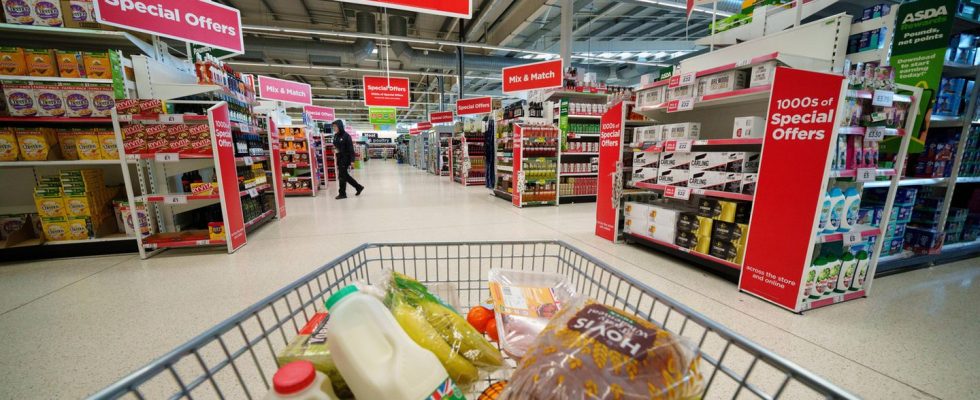Dilapidated social system
A kingdom for dinner: millions of Britons are starving
Expensive shopping trip: Fewer and fewer Brits can afford balanced shopping
© John Super/Xinhua/Imago Images
The world’s sixth largest economy cannot adequately feed its children. Poorer families in Britain are finding it increasingly difficult to get enough, healthy food on the table. This puts a strain on the ailing health system.
The price per square meter in Europe’s financial capital London is climbing almost inexorably to astronomical heights. Large landowners are running out of superlatives for their properties. The British monarch’s income has more than doubled in the past decade.
This is the one, the most polished side of the United Kingdom. The other one looks far less impressive. There would be a completely broken social system that literally costs lives every day. There are the thousands upon thousands of people who live in deteriorating suburbs with a complete lack of prospects, trapped in the lower class.
And then there are the millions of families who are hungry.
Millions of households are affected by hunger
According to research by the Food Foundation, 15 percent of British households were food insecure in January – meaning they were unable to provide enough food every day. That corresponds to around eight million adults and three million children.
The researchers asked around 6,000 people whether they recently reduced or skipped meals, went hungry for financial reasons, or didn’t eat for at least a day. If the respondents agreed, they were counted in this category. According to the Guardian, experts see the alarming results as a “health emergency” and warn of diseases caused by malnutrition, such as the bone disease rickets.
Between October and the end of 2023, one in 25 Brits said they had run out of food and could not afford to buy more, according to analysis by the Office for National Statistics (ONS). According to the Food Foundation, almost half of all households that receive money through the so-called “universal credit” (a general social assistance) are affected by hunger.
Food prices have risen significantly due to factors such as Brexit and inflation. While an average weekly shop for a single man cost around £44 in April 2021, the same shop now costs £55.
Healthy food is becoming increasingly expensive in the UK
But it’s not just about the quantity, but also about the quality at the dinner table. Poor people eat differently than rich people. Low-income Brits save primarily on healthy foods. Foods such as fruit, vegetables and fish are becoming less and less affordable for the lower classes. 60 percent of households that had to save money on food in January cut back on fruit and vegetables. No wonder, according to the Food Foundation, healthy food is now twice as expensive per calorie. The poorest fifth of the population would ultimately have to spend around half of their income to get the government-recommended amount of healthy food on their plates.
“Parents often have no choice but to buy cheaper, highly processed foods that are high in salt and sugar,” pediatrician Camilla Kingdon, president of the Royal College of Paediatrics and Child Health, told the Independent.
The consequence: Obesity, type 2 diabetes and tooth decay are on the rise. This in turn puts a strain on the already ailing British health system. In the political chaos of recent years, the NHS (National Health Service) has repeatedly had to serve as a reserve for the ailing economy – with visible consequences. About a year ago, headlines made the rounds that between 300 and 500 people die every day because they could not receive timely care in medical emergencies (the star reported).
Ailing social system as an election campaign issue
There are likely to be elections this year, and the NHS is likely to be the focal point of the election campaign. There doesn’t seem to be any improvement in sight until then, on the contrary. From April, the government in London could reportedly stop funding the Household Support Fund – a £900 million emergency fund that councils also use to provide food vouchers for families with children and free school meals. The reason: There is no money.
Sources: “Food Foundation“; The Guardian“; “The Independent“


